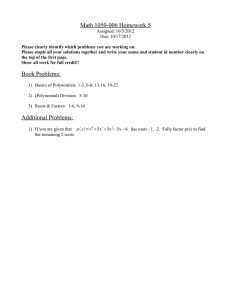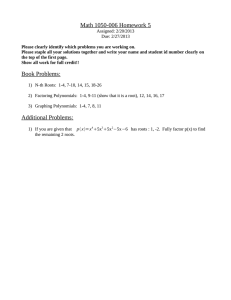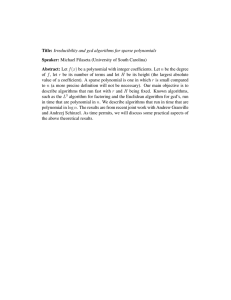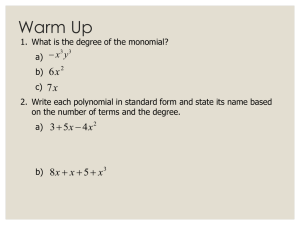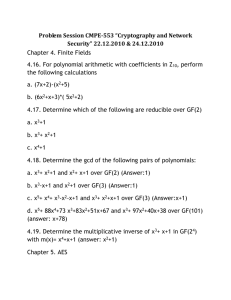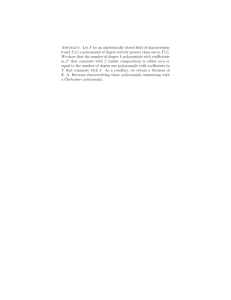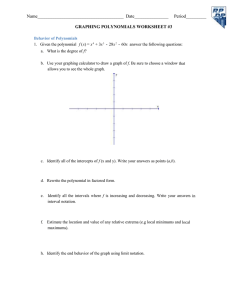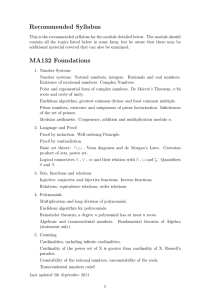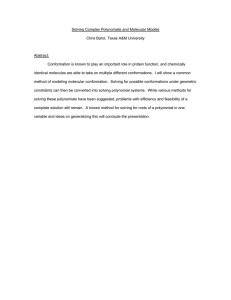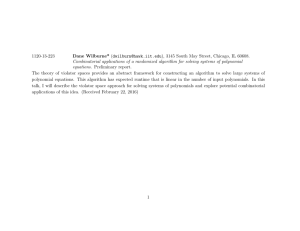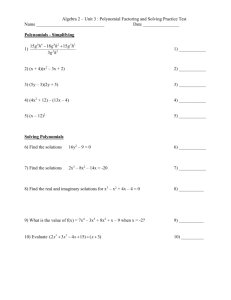Efficient Algorithms for Characterizing the Roots of Sparse Polynomials
advertisement
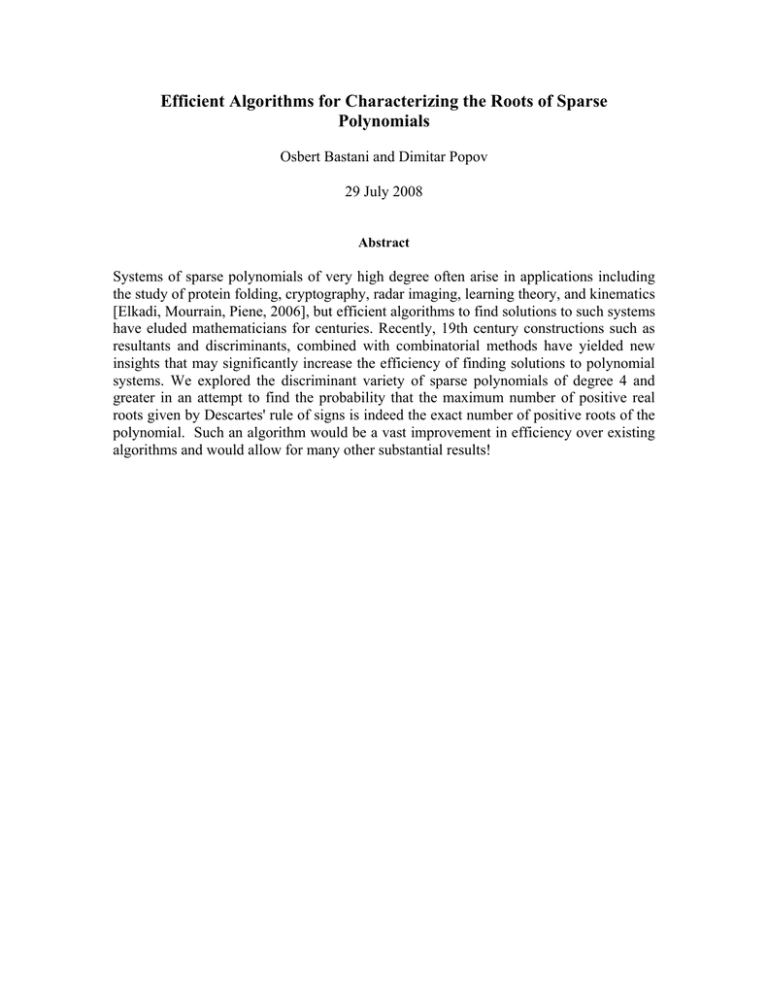
Efficient Algorithms for Characterizing the Roots of Sparse Polynomials Osbert Bastani and Dimitar Popov 29 July 2008 Abstract Systems of sparse polynomials of very high degree often arise in applications including the study of protein folding, cryptography, radar imaging, learning theory, and kinematics [Elkadi, Mourrain, Piene, 2006], but efficient algorithms to find solutions to such systems have eluded mathematicians for centuries. Recently, 19th century constructions such as resultants and discriminants, combined with combinatorial methods have yielded new insights that may significantly increase the efficiency of finding solutions to polynomial systems. We explored the discriminant variety of sparse polynomials of degree 4 and greater in an attempt to find the probability that the maximum number of positive real roots given by Descartes' rule of signs is indeed the exact number of positive roots of the polynomial. Such an algorithm would be a vast improvement in efficiency over existing algorithms and would allow for many other substantial results!
